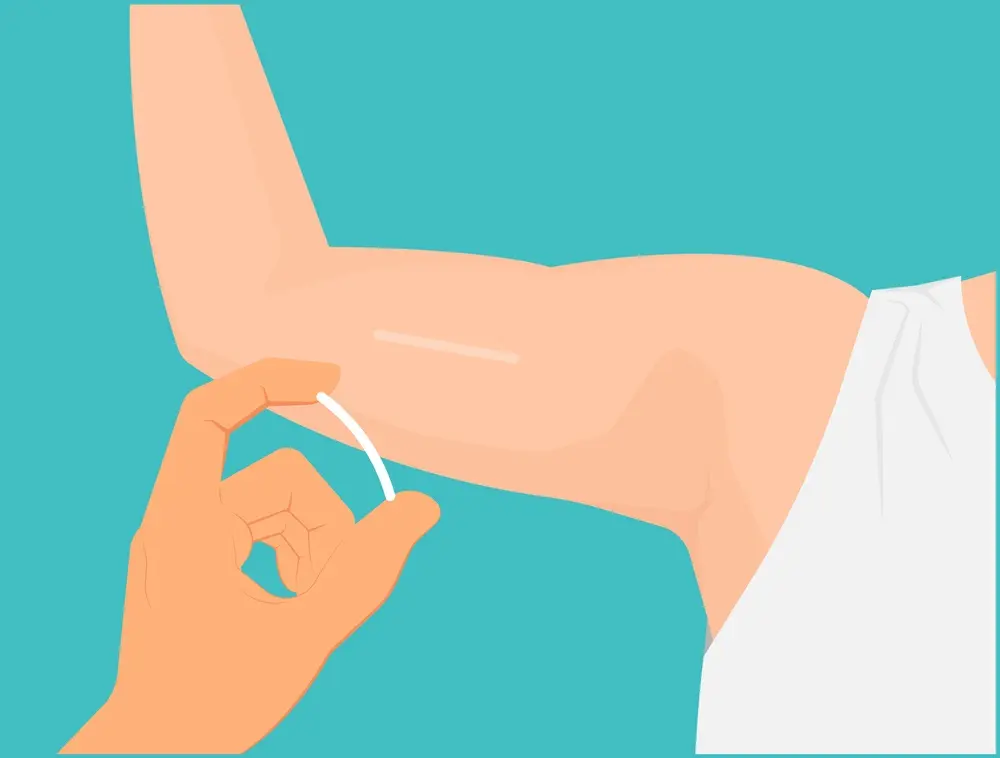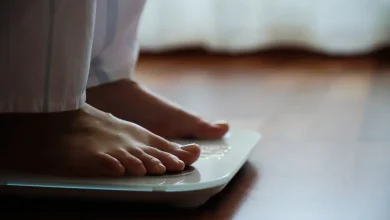Weight loss after nexplanon removal

The effects of Nexplanon on weight
Common concerns after removing Nexplanon
After removing Nexplanon, some individuals may have concerns about their weight. It is important to note that weight gain is a possible side effect of Nexplanon use, but it is not guaranteed for everyone. Some people may experience weight gain while using Nexplanon, while others may not notice any significant changes in their weight.
Final thoughts on weight loss after Nexplanon removal
If you are concerned about weight gain or difficulty losing weight after removing Nexplanon, it is essential to remember that everyone’s body is different. It may take some time for your body to adjust and your hormones to regulate after removing Nexplanon.
Common concerns addressed
Some common concerns regarding weight loss after Nexplanon removal include:
- Will I automatically lose weight after removing Nexplanon?
- How long does it take to lose weight after Nexplanon removal?
- What can I do to support weight loss after Nexplanon removal?
Frequently Asked Questions
Q: Can removing Nexplanon cause weight loss?
A: While some individuals may experience weight loss after removing Nexplanon, it is not guaranteed for everyone.
Q: How long does it take to lose weight after Nexplanon removal?
A: The time it takes to lose weight after Nexplanon removal can vary from person to person. It is essential to focus on maintaining a healthy lifestyle and consult a healthcare professional for personalized advice.
Q: Are there any specific diet or exercise recommendations for weight loss after Nexplanon removal? A: A balanced diet and regular exercise are generally recommended for overall health and well-being. Consulting with a healthcare professional can provide personalized recommendations based on your needs and goals.
Understanding Nexplanon
What is Nexplanon?
Nexplanon is a small, flexible rod inserted under the upper arm’s skin to provide long-term contraception. It releases a hormone called etonogestrel, which prevents pregnancy by stopping ovulation.
How does Nexplanon affect weight?
Weight gain is a common concern among women using Nexplanon. While some individuals may experience weight gain, studies have shown that it does not directly affect the contraceptive implant. The hormone released by Nexplanon can cause changes in appetite and fluid retention, which may contribute to weight fluctuations.
It is important to note that weight gain can be influenced by various factors such as lifestyle, diet, and genetics. If you are concerned about weight gain after Nexplanon removal, it is recommended to maintain a healthy lifestyle with regular exercise and a balanced diet.
Remember, everyone’s body reacts differently to contraceptives, so it’s essential to consult with your healthcare provider for personalized advice and guidance. They can help you explore alternative contraceptive options or provide strategies to manage any potential weight changes.
Weight loss after Nexplanon removal
Factors influencing weight loss
After removing Nexplanon, a hormonal birth control implant, some individuals may experience weight loss. Several factors can contribute to this:
- Hormonal changes: Removing Nexplanon can lead to a shift in hormone levels, which may affect metabolism and appetite.
- Lifestyle changes: Some individuals may become more motivated to adopt healthier habits after Nexplanon removal, such as regular exercise and a balanced diet.
Tips for healthy weight loss
If you are looking to lose weight after Nexplanon removal, here are some tips to consider:
- Consult a healthcare professional: Before starting any weight loss journey, it is essential to consult with a healthcare professional who can provide personalized guidance and support.
- Eat a balanced diet: Focus on consuming nutrient-dense foods such as fruits, vegetables, lean proteins, and whole grains. Avoid crash diets or extreme calorie restrictions.
- Engage in regular physical activity: Incorporate cardiovascular exercises and strength training into your routine to promote weight loss and overall health.
- Maintain a consistent sleep schedule: Aim for 7-9 hours of quality sleep each night, as lack of sleep can disrupt metabolism and lead to weight gain.
Remember, weight loss should be approached healthily and sustainably. Listening to your body and making choices that support your overall well-being is essential.
Exercise and physical activity
The role of exercise in weight loss
Regular exercise plays a crucial role in weight loss after Nexplanon removal. Physical activity helps burn calories, increase metabolism, and build lean muscle mass. It also improves cardiovascular health and overall well-being. Exercise can contribute to a calorie deficit, essential for shedding excess pounds. Incorporating aerobic activities, such as running or cycling, and strength training exercises, like weightlifting or bodyweight exercises, can maximize weight loss results.
Effective workouts for post-Nexplanon removal
- Cardiovascular exercises: Activities like jogging, swimming, or dancing are excellent for burning calories and improving cardiovascular fitness.
- Strength training: Incorporating resistance exercises using weights or bands can help build muscle and increase metabolism.
- High-intensity interval training (HIIT): HIIT workouts involve alternating between intense bursts of exercise and short recovery periods. This type of training is effective for burning calories and boosting metabolism.
- Pilates or yoga: These low-impact exercises focus on flexibility, strength, and balance. They can improve overall body composition and promote relaxation.
Consult a healthcare professional or certified trainer before starting any new exercise program. It’s essential to listen to your body and gradually increase the intensity and duration of your workouts to avoid injury. With consistency and dedication, exercise can be a powerful tool in achieving weight loss goals after Nexplanon removal.
Nutrition and diet
Balanced eating for weight loss
After the removal of Nexplanon, it is common for women to experience changes in their weight. So, to support weight loss goals, focusing on a balanced diet is essential. And it means incorporating various nutrient-rich foods such as fruits, vegetables, whole grains, lean proteins, and healthy fats. It is also necessary to control portion sizes and avoid excessive consumption of sugary and processed foods.
Foods to include and avoid after Nexplanon removal
Including certain foods in your diet can help with weight loss after Nexplanon removal. Some examples include:
- Lean proteins: Incorporate sources like chicken breast, fish, tofu, and legumes to support muscle growth and repair.
- Fruits and vegetables: These provide essential vitamins, minerals, and fibre while being low in calories.
- Whole grains: Opt for complete grain options like brown rice, quinoa, and whole wheat bread to increase satiety and sustain energy.
On the other hand, it is crucial to limit or avoid certain foods that can hinder weight loss efforts. These include:
- Sugary beverages: Drinks like soda, fruit juices, and energy drinks are high in calories and can contribute to weight gain.
- Processed snacks: Chips, cookies, and candies are often high in added sugars, unhealthy fats, and empty calories.
By focusing on a balanced diet that includes nutrient-rich foods and avoiding or limiting unhealthy options, individuals can support their weight loss journey after Nexplanon removal. It is also recommended to consult with a healthcare professional or registered dietitian for personalized guidance.
Managing hormone fluctuations
How hormone changes can affect weight
After removing Nexplanon, a hormonal contraceptive implant, some individuals may experience fluctuations in their hormone levels. These hormonal changes can potentially impact weight.
When hormone levels fluctuate, it can affect metabolism and appetite regulation. Some people may notice increased appetite or cravings for certain foods, leading to overeating and weight gain. Additionally, hormonal imbalances can affect the distribution of fat in the body, leading to changes in body composition.
Strategies for managing hormonal imbalance
To manage weight after Nexplanon removal, focusing on maintaining a healthy lifestyle is essential. Here are some strategies that can help:
- Regular exercise: Regular physical activity can help boost metabolism and burn calories. Aim for a combination of cardiovascular conditioning and strength training.
- Healthy eating: Focus on consuming a balanced diet that includes plenty of fruits, vegetables, lean proteins, and whole grains. Avoid excessive consumption of processed foods and sugary snacks.
- Stress management: High stress levels can contribute to hormonal imbalances. Incorporate stress-reducing activities such as meditation, yoga, or spending time in nature.
- Adequate sleep: Sleep quality is crucial for hormone regulation and overall well-being. Aim for 7-9 hours of sleep per night.
- Consult a healthcare professional: If you are experiencing significant weight changes or other symptoms after Nexplanon removal, it is advisable to consult with a healthcare professional who can provide personalized guidance and support.
By implementing these strategies and being mindful of your body’s needs, you can effectively manage weight fluctuations that may occur after Nexplanon removal. Remember to be patient with yourself and prioritize your overall health and well-being.
Lifestyle changes and habits
Healthy lifestyle changes to support weight loss
After the removal of Nexplanon, it is common for women to experience changes in their weight. To support weight loss and maintain a healthy lifestyle, here are some fundamental changes to consider:
- Regular exercise: Physical activities such as cardio, strength training, and yoga can help burn calories and improve overall fitness.
- Healthy eating: Focus on a balanced diet that includes fruits, vegetables, whole grains, lean proteins, and healthy fats. Limit processed foods, sugary drinks, and excessive snacking.
- Portion control: Be mindful of portion sizes to avoid overeating. Use smaller plates and listen to your body’s hunger and fullness cues.
Habits to adopt after Nexplanon removal
- Stay hydrated: Drinking adequate water throughout the day can help boost metabolism and curb cravings.
- Maintain a consistent sleep schedule: Aim for 7-8 hours of quality sleep each night to support weight management and overall well-being.
- Manage stress: Find healthy ways to cope, such as practising mindfulness, engaging in hobbies, or seeking support from friends and family.
Remember, weight loss after Nexplanon removal may vary for each individual. It is essential to consult with a healthcare professional for personalized advice and guidance on achieving your weight loss goals.
Tracking progress and staying motivated
Measuring weight loss success
After removing the Nexplanon implant, many individuals may experience changes in their weight. It measures weight loss success, and it is essential to establish realistic goals and track progress effectively. It can be done by keeping a record of body measurements, such as waist circumference or body fat percentage, and regularly weighing oneself. Additionally, monitoring changes in clothing size or overall energy levels can provide further progress indicators.
How to stay motivated throughout the journey
Embarking on a weight loss journey can be challenging, but staying motivated is critical to success. Here are some tips to help maintain motivation:
- Set achievable goals: Break down your weight loss journey into smaller, attainable goals to celebrate milestones.
- Find a support system: Surround yourself with friends, family, or a support group that can provide encouragement and accountability.
- Keep track of progress: Monitor your progress and celebrate even the most minor achievements.
- Reward yourself: Treat yourself with non-food rewards for reaching milestones or sticking to healthy habits.
- Stay positive: Focus on your positive changes and remind yourself why you started this journey.
Remember, weight loss is a gradual process, and it’s essential to prioritize overall health and well-being rather than just focusing on the number on the scale.



